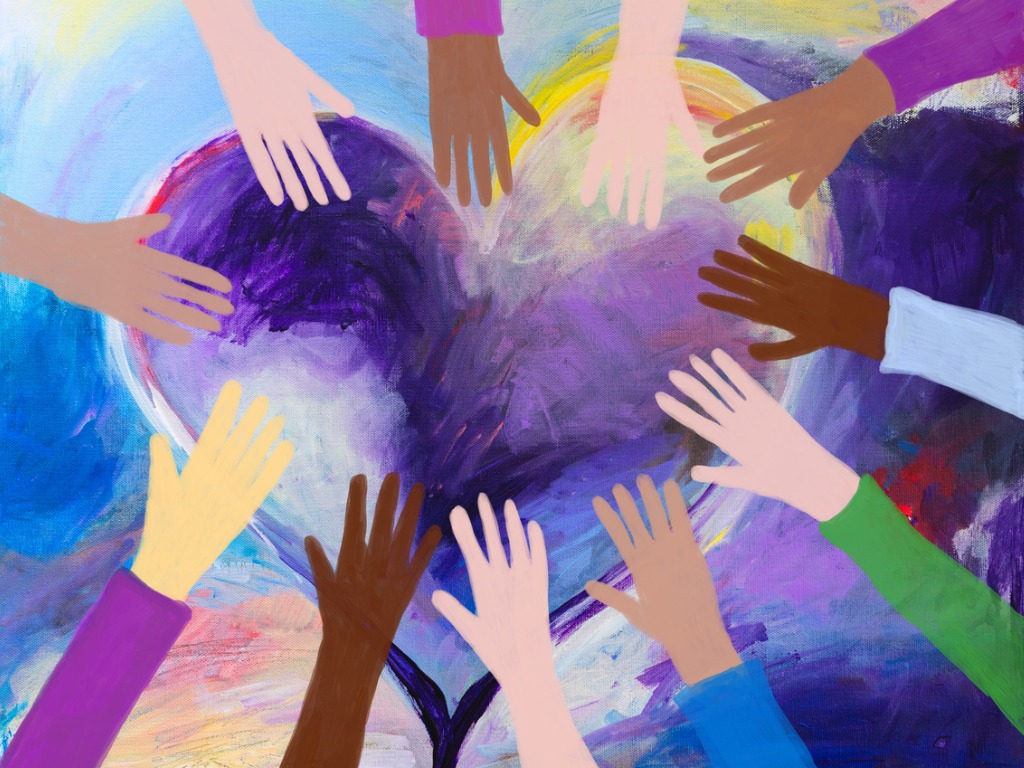
Shelagh Donnelly offers her perspective on actions you can take when the going gets tough
It’s November, and spring is underway in the southern hemisphere. Those of us in northern climes recently marked the close of Daylight Savings Time for this year. Darkness falls upon our locales a little earlier each day – and will continue to do so until December 21st and the winter solstice. In any other year, this season would see thousands upon thousands of Assistants commuting to and from work in the dark. In 2020, this season may instead see you turning on lights (or having AI do it for you) earlier than ever, and then keeping them on all day as you work from home.
These darker days are one more reason so many people look forward to Christmas, Diwali, Hanukkah and the start of the new year. Convictions aside, these events and all their trimmings brighten lives for many. In a number of jurisdictions, though, we may need to accept that these events are likely to unfold differently than in past years. There may be fewer people gathered around your holiday table this year.
November has also brought renewed challenges or uncertainties in some countries. I’ve heard from a number of Assistants whose routines are again shifting. An Italian friend has told me of the resumption of restrictions in her country, and the impacts on her career and personal life. A one-month partial lockdown is underway in Germany, and France is under its second lockdown as I write. The Czech Republic has stepped up restrictions to include a curfew. People in Belgium, Denmark, Greece, the Netherlands, Portugal and Spain are also adapting to some form or another of curfew, lockdown or restrictions.
Many people in other parts of the globe are also affected, of course. How many of you reading this in England managed to fit in a coveted appointment at your hair salon before regulations kicked in on November 5th? One significant difference from the first such lockdown in England is that this time around, schools and universities are set to remain open. Mixing between households has been banned, however, and people are encouraged to work from home wherever possible.
Thinking about voting brings our American neighbours to mind. There, people are dealing with election outcomes as well as the COVID-19 pandemic. Here on the west coast of Canada, we’ve faced restrictions and a record-breaking 1,120 positive tests over the space of three days, yet we’ve generally experienced fewer challenges than many jurisdictions.
The impacts of this recent round of restrictions and closures may range from financial to emotional, and everything in between.
You may be doing well
This year has also brought many positive moments. We may have to create or actively seek them out at times, yet they are accessible. People have made big moves or bought new homes. Others have attained new credentials or made progress in other aspects of life. Some of you may have celebrated the birth of new family members, or the arrival of other special new people in your lives.
It’s a fact that some Assistants’ careers are at a low ebb, even if employed. If you’re among the Assistants whose roles have dissipated, you may still be looking forward to joining the ranks of others who were in the same position and have since landed neatly in new positions. For yet others, these times are providing opportunities to demonstrate relevance and value. Some assistants are going from strength to strength career-wise. Yet others live in regions not dramatically impacted by COVID-19 at this point in time.
Many people are doing well overall, despite COVID-related challenges. If that’s the case, you’re nicely positioned to keep a thoughtful eye out for others who may benefit from a positive connection. Let the closing weeks of 2020 serve as opportunities for you to let others know you care. You may choose to schedule up to 10 minutes a day, or a half hour a week, in your calendar to reach out to others. What approach will you take: a brief text or message? Perhaps you’ll adopt different approaches with different people. You may schedule virtual coffee breaks with some individuals. Or, if you have an appetite for rarities, you may decide to make an actual phone call or send a handwritten note or card.
You aren’t expected to solve the world’s problems, or an individual’s problems. You can, however, offer kind words, shared humour, and encouragement of hope.
If you’re not doing as well as you’d like
Some people are not doing as well as they would like, whether or not they are working. Please remember that tough times are not permanent. Things will improve. While there’s no magic wand you can wave to speed the process along, there are some things you can do to help make your way through challenging days. It’s helpful for you to stay connected. Tap into your networks and professional associations, and your friends – and extend a hand yourself, when and as you can.
Be good to yourself and to others. Some things are beyond your control right now, so apply your energy to those aspects of life you can control or influence. You may have heard the expression that life is 10% what happens to us, and 90% how we react to it. This is no mere platitude; it speaks to the importance of our attitudes and the choices we make.
What can you do?
Early this month, a friend reached out for tips on mental health and peace of mind. I don’t presume to be an authority. I do know, though, that tough times don’t last. The expression, “This too shall pass” is apt. I believe that we do ourselves a service when we recognise what we can and cannot control, and focus our energies on those aspects of life we can control or influence. Has your life been turned upside down yet again this year? Turn your mind to establishing new routines, and to seeking out positive aspects associated with such changes.
I believe that, whether we’re doing well or feeling challenged, it helps to lead with kindness and patience. If there’s a shortage of those two qualities around you, try something that may sound silly: spend a few minutes enjoying a bit of Sesame Street, Mr. Rogers, or some other medium that’s wrapped around concepts such as kindness and openness.
The simplest things can bring contentment. On one of my walks this week, I came across a young woman crouched on the sidewalk, her face inches away from a lovely dog. She was stroking and talking to the dog. In turn, the dog was gazing adoringly at her or his person, and I wish you could have seen the rhythmic, contented thumping of the dog’s tail. This was a mutual admiration society of two, and I was happy for them. Having loved a couple of wonderful big dogs myself, I know just how much pleasure our four-legged friends can bring.
What else can you do?
Consider helping someone else; you’re likely to find this may benefit not only the other party, but also your own morale. Think about and act on things you enjoy, be it reading, music, exercise, something creative, or soaking up the natural environment to the extent you can. I’m fortunate in being able to walk to some area beaches. If you follow me on Instagram and other social media platforms, you’ve likely seen my photos and videos of the Pacific. I love the sounds of the waves coming in, and waters splashing toward the shore. A friend remarked the other day that she turns to these videos for the soothing nature of the sights and sounds – and that, in turn, made my day.
Attention to seniors is particularly meaningful at this point in time. Pick up the phone or, if your seniors are tech savvy, make opportunities to message them or spend time together virtually face to face. I’ve been making and sending cards, for special occasions and also simply to let good people know others are thinking of them.
We can draw inspiration from the elderly, including people such as my second cousin Rory. Rory is a diminutive, delightful and impressive woman. I smile just thinking of her; she reminds me incredibly of my grandmother and has reached the age of 96 with grace and dignity. Living in Cornwall, England, it’s just this fall that she sold her home and moved into a facility for seniors. We can all learn a thing or two about resilience from seniors who have lived not only through this pandemic, but also through a world war and much, much more. Think, too, of how we can support them.
About those choices
However you’re doing, you have the capacity to control your choices and your attitude. You’ll find below some thoughts I’ve been sharing in some of my webinar presentations this year. I hope that, if you decide to read these statements – or something comparable that works for you – aloud to yourself, they become convictions that prove helpful.
However challenging a day may be, we have choices.
I choose to begin this day with appreciation for who and what I have.
I choose to seek out and extend positivity today.
I choose to offer kind words, smiles and optimism today. I choose to share laughter and hope.
I choose to spend time outdoors today if possible, and to exercise. I choose to do something I enjoy.
I choose to close this day replaying in my mind’s eye the day’s bright moments.












